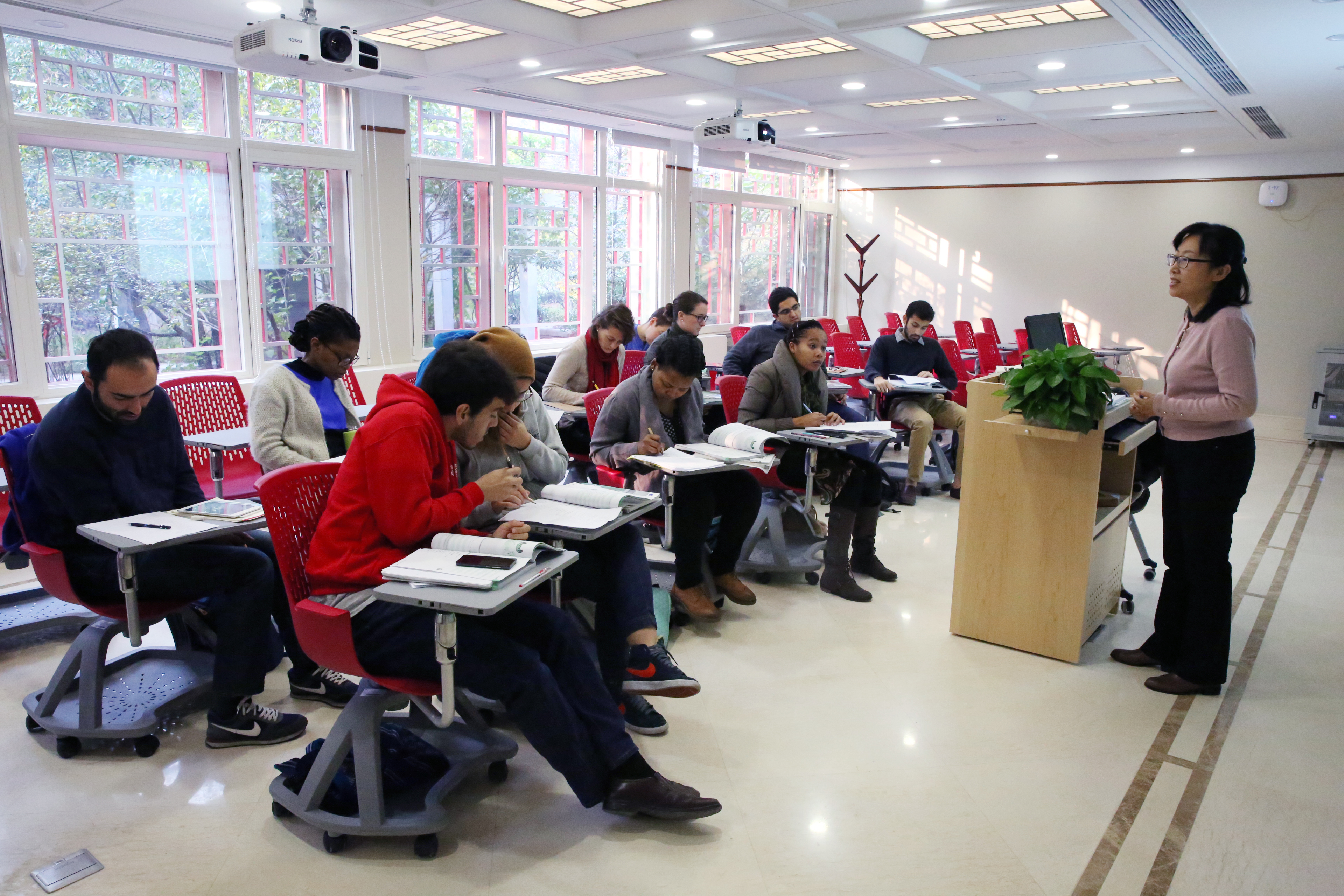The Yenching Academy master's program in China Studies incorporates both Eastern and Western perspectives, as scholars draw upon diverse viewpoints to explore issues related to contemporary Chinese society and culture. The curriculum investigates Chinese thoughts and values, drawing upon interdisciplinary theories and methodologies from both China and abroad. The program focuses on core features and values of Chinese society, and Chinese civilization's role in the transformation of modern global culture and governance.
Yenching Scholars complete core and elective courses that introduce them to major topics in the field of China Studies. The Academy also organizes field studies to culturally, economically, and socio-politically significant regions within Mainland China.
Chinese language study is compulsory for all international students. In addition to Yenching Academy course offerings, Scholars may select courses in other Peking University departments, taught in either Chinese or English. For Yenching Scholars from China, at least 75% of the courses must be taught in English.
Graduation from the Academy requires the successful completion of at least 31 academic credits, as well as writing and orally defending a master's thesis.

China in Transition explores the topics of modernity and sustainability from the perspectives of four disciplines: economics, sociology, politics and law, and environment. It examines the interactive and restricted relations among these areas, combining lectures with group discussions, and incorporating both research and field studies. Team work and independent research are both important components of the course. Students are encouraged to design field studies themselves, and to carry out team academic research projects in various regions of China.
In this course, all students travel to Sichuan and Chongqing for a week-long study trip led by professors from different disciplines. By visiting historical and cultural sites as well as modern industrial parks, scholars learn about the transformation and development of Sichuan and Chongqing from perspectives such as history, architecture, religion, customs, and modern economic growth. During the field study trip, students not only deepen their understanding of ancient Chinese culture and history, but also experience traces of innovation and development in contemporary China.
The Topics in China Studies Lecture Series invites renowned scholars from China and abroad to deliver talks on issues related to China Studies, ranging across the social sciences and humanities. The course is question-oriented, and employs interdisciplinary knowledge and methodologies to spark meaningful discussions and academic dialogue.
All international Yenching Scholars enroll in Chinese language courses taught by faculty of the Peking University School of Chinese as a Second Language. Students attend small group classes according to their levels of Chinese. The course focuses on application of language knowledge, improving communicative competence across contexts, and developing reading and writing abilities. It also aims to help students improve their intercultural communication awareness and capabilities.


Quantitative Reasoning
Academic Writing
Qualitative Research Method
Leadership Development
Reading Classical Chinese Literature
Contemporary Chinese and American Fiction in Comparative Perspective
Art of China
Development of Chinese Civilization
Ethnographies of Modern Education: China and Beyond
History of the Field: Sinology and China Studies from a Global Perspective
Critical Conceptions of Chinese Thoughts
Chinese Classics and Thought: Confucianism, Daoism, and Buddhism
Chinese World Views
Contemporary Chinese Society
The Legal Dynamics of Chinese Commerce and Society
Women in Contemporary China
Understanding Social Inequality: China and the World
China and International Law
Social Stratification and Mobility in China
Chinese Frontier Societies: A Socio-historical Approach
Critical Perspectives on Modern Sino-Foreign Relations
Chinese Population
China's Financial System
The Economic Thinking of Chinese Entrepreneurs
China and the World Economy: A Macroeconomic Perspective
International Trade
China's Economic Reform and Development
Rural China Studies (Taught in Chinese)
China in the World Economy: Han Dynasty to the Present
China's Diplomacy and Global Governance in the New Era
Theory and Practice of Chinese Foreign Policy
Cultural Dimensions of China's Foreign Relations
Chinese Perspective on Global Migration
Retrospect and Prospect of International Development Cooperation in China
Reforms in China: Theory and Policy
Chinese Politics in Historical Perspective (Taught in Chinese)

Cao Dazhi

Chang Sen

Chen Changwei

Cheng Lesong

Ding Ning

Dong Hao

Joseph Wharton Es...

Fan Shiming

Fu Gang

Fu Jun

Guo Li

Ha Wei

Brent Haas

Frank Hawke

Hong Yue

Lai Lili

Lei Xiaoyan

Li Lixing

Li Pengfei

Li Yingtao

Lin Qingxin

Lin Wanchuan

Liu Airan

Liu Chen

Gordon Liu

Liu Haifang

Liu Minquan

Lou Jianbo

Lu Jiehua

Lu Yang

Lu Yun

Meng Qingnan

Pan Jianguo

Peng Feng

Qin Ling

Qu Tongli

Qiu Zeqi

Shi Jv

Tang Yao

Tian Geng

Wang Shuguang

Wang Chao

Wang Liping

Wang Yuan

Wu Jing

Wu Lijuan

Xu Jianhua

Xu Mingzhi

Yang Feng

Xu Xin

Yang Zhaohui

Yu Jia

Zhang Changdong

Zhang Hai

Zhang Huiyu

Zhang Jian

Zhang Qingmin

Zhang Ran

Zhang Shiqiu

Zhao You

Zhou Yi
Address: Jingyuan Courtyard 3, Peking University, 5 Yiheyuan Road, Haidian District, Beijing, 100871
Tel:010-6275 3625
Email:yca@pku.edu.cn
Tel: 86-10-6274 4510 (Domestic)
86-10-6276 6358 (International)
Email:yca-admissions@pku.edu.cn
Tel:010-6276 8317
Email:gycapr@pku.edu.cn
Tel:010-6275 6761
Email:ycacareer@pku.edu.cn
Tel:010-6275 6761
Email:ycaalumni@pku.edu.cn